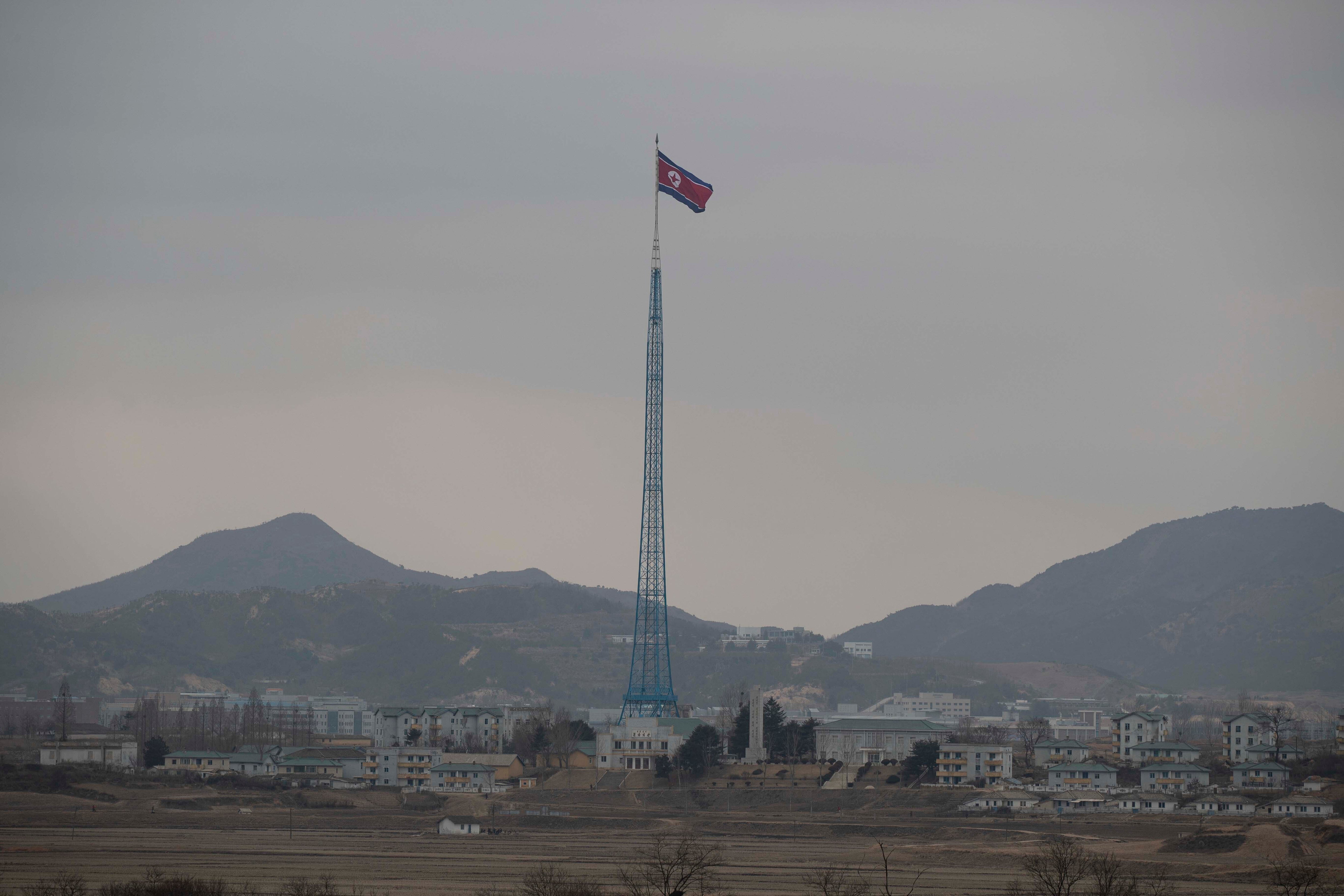West spotlights North Korea rights abuses; China opposes
The United States, its Western allies and experts shone a spotlight on the dire human rights situation and increasing repression in North Korea at a U.N. meeting

The United States, its Western allies and experts shone a spotlight on the dire human rights situation and increasing repression in North Korea at a U.N. meeting Friday that China and Russia denounced as a politicized move likely to further escalate tensions on the Korean peninsula.
China blocked the U.S. from broadcasting the informal Security Council meeting globally on the internet, a decision criticized by U.S. Ambassador Linda Thomas-Greenfield as an attempt to hide North Korea’s “atrocities from the world.”
Webcasting requires agreement by all 15 council members. But the U.S. envoy said Beijing’s effort was in vain because the meeting will be made public, and the U.S. and many others will continue to speak out against Pyongyang’s human rights abuses and threats to international peace.
James Turpin, a senior official in the Office of the U.N. High Commissioner for Human Rights, said the ongoing tensions on the Korean peninsula pose a threat to regional and international peace and security, and “these tensions cannot be separated from the dire human rights situation in the Democratic People’s Republic of Korea,” the North’s official name.
Since the start of the COVID-19 pandemic in early 2020, North Korea has been isolated. The United Nations has no international staff in the country and Turpin said this “coincides with an increase in the repression of civil and political rights.”
He pointed to stronger government measures to prevent people from getting access to information from the outside world, an extreme level of surveillance, people's homes being subjected to random search for material not authorized by the state, and punishments for anyone trying to exercise basic rights including freedom of expression, religion and peaceful assembly.
Elizabeth Salmon, the U.N. special investigator on human rights in North Korea, also stressed “the interdependence of international peace and security and human rights,” saying peace and denuclearization can’t be addressed without considering the current human rights violations.
She told the meeting that the limited information available shows the suffering of the North Korean people has increased and their already limited liberties have declined. Access to food, medicine and health care remains a priority concern, “people have frozen to death during the cold spells in January,” and some didn’t have money to heat their homes while others were forced to live on the streets because they sold their homes as a last resort.
Xing Jisheng, a counsellor at China’s U.N. Mission, criticized the U.S. for discussing human rights in the Security Council whose mandate is ensuring international peace and security, saying it “is not constructive in any way.” Instead of easing tension, he said, “it may rather intensify the conflict, and therefore it’s an irresponsible move.”
“Using U.N. WebTV for live broadcast is a waste of U.N. resources,” Xing added, saying if countries are really concerned about the situation on the Korean peninsula and well-being of the people they should work to relaunch dialogue, de-escalate tensions, and support lifting sanctions that affect the livelihood of North Koreans and the country's deteriorating humanitarian situation.
Stepan Kuzmenkov, a senior counsellor at Russia’s U.N. Mission, echoed China’s opposition to having the Security Council discuss human rights and said there were no grounds for convening the meeting “which has a clear anti-North Korean bent.”
He accused the U.S. of using human rights “to settle scores with the governments not to their liking” and condemned what he called “streams of disinformation” about North Korea disseminated by the U.S. and its allies “on the pretext that they’re trying to protect human rights.”
“What we see is that the United States, South Korea and Japan are engaging in aggressive, militaristic activities, thereby whipping up tensions in northeastern Asia, putting the security of countries in the region at risk,” Kuzmenov said. “The Americans are ignoring initiatives which would help ease tensions as well as the substantive and constructive signals (North Korean leader) Kim Jong Un is sending, which could bring about possible de-escalation.”
America’s Thomas-Greenfield countered that “the regime’s widespread human rights abuses and its threats to our collective security could not be clearer.”
North Korea's ballistic missile and weapons of mass destruction programs threaten international peace and security and are “inextricably linked to the regime’s human rights abuses,” she said.
“In the DPRK, the pursuit of weapons of mass destruction always, always trumps human rights and humanitarian needs of its people,” Thomas-Greenfield said.